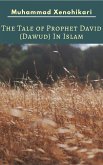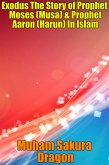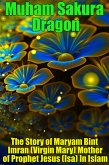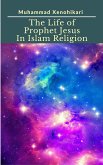Prophet Joseph or Yusuf is believed to have been the eleventh son of Prophet Jacob (Yaqub), and, according to many scholars, was his favorite. According to Ibn Kathir, "Jacob had twelve sons who were the eponymous ancestors of the tribes of the Israelites. The most noble, the most exalted, the greatest of them was Joseph." The story begins with Joseph revealing a dream to his father, which Jacob recognizes as a vision. In addition to the role of God in his life, the story of Yusuf and Lady Zulaikha (Potiphar's wife of the Old Testament) became a popular subject in Persian literature, where it became considerably elaborated over the centuries.
The story of Joseph in the Quran, a continuous narrative, is considered one of the most beautifully written suras. There are less than one hundred verses but they encompass many years and "present an amazing variety of sciences and characters in a tightly-knit plot, and offer a dramatic illustration of some of the fundamental themes of the Quran. "The Qur¿an itself relates to us the importance of the story in the third verse: "and We narrate unto you the best (or most beautiful) of stories (äsan al-qesas)." Most scholars believe this is referring to Prophet Joseph's story, while others, including ¿abari, argue it is a reference to the Quran as a whole. It documents the execution of God's rulings despite the challenge of human intervention ("And Allah hath full power and control over His affairs; but most among mankind know it not").
This is what the story of Yusuf confirms categorically, for it ends with comfort and marvels, which is described in Quran.
Scholars and believers reveal Joseph is one of the most revered men in Islamic history. Having come through an especially noble line of patriarchs -Prophet Abraham, Isaac and Jacob - Joseph too was awarded the gift of prophecy like his forefathers. As Kisai, one of the foremost writers on the lives of the Quranic prophets, states, this was also evident in the fact that Joseph was given a staff of light with five branches. On the first branch was written, 'Abraham, friend of God' on the second, 'Isaac, sacrifice of God'; on the third, 'Ishmael, pure of God'; on the four, 'Jacob, Israelite of God'; and on the fifth, "Joseph, Righteous of God."
The Quranic narrative about Joseph is perhaps one of the Book's most detailed accounts of the life and deeds of a prophet. Joseph, as a figure, is symbolic of the virtue of beauty - his life being a thing of beauty in itself. Most importantly, though, Joseph is admired as a great preacher of the Islamic faith, who had an extremely strong commitment to God and one who tried to get people to follow the path of righteousness. The Qur'an recounts Joseph's declaration of faith:
And I follow the ways of my fathers,- Ibrahim, Ishaak, and Ya'qub; and never could we attribute any partners whatever to Allah: that (comes) of the grace of Allah to us and to mankind: yet most men are not grateful. (Qur'an, sura 12 (Yusuf) ayah 38)
Dieser Download kann aus rechtlichen Gründen nur mit Rechnungsadresse in A, B, BG, CY, CZ, D, DK, EW, E, FIN, F, GR, H, IRL, I, LT, L, LR, M, NL, PL, P, R, S, SLO, SK ausgeliefert werden.









